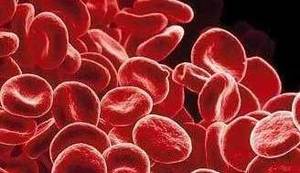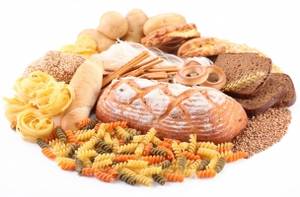Red blood cells (RBCs) play a crucial role in transporting oxygen throughout your body. A low red blood cell count can lead to fatigue, shortness of breath, and other health complications. If you’re looking to boost your red blood cells, here are some expert-backed strategies to help you do so naturally and effectively.
Ease of Methods for Increasing Red Blood Cells
| Method | Ease (%) |
|---|---|
| Staying Hydrated | 95% |
| Adding Vitamin C to Diet | 85% |
| Regular Exercise | 75% |
| Increasing Iron Intake | 65% |
| Getting Enough Vitamin B12 | 50% |
This chart illustrates the ease of various methods to increase red blood cells, with staying hydrated being the simplest at 95% and improving Vitamin B12 intake requiring more effort at 50%.
What Are Red Blood Cells and Why Are They Important?
Red blood cells are produced in the bone marrow and contain hemoglobin, a protein that binds to oxygen. They deliver oxygen from your lungs to the rest of your body and return carbon dioxide for exhalation. Maintaining a healthy RBC count ensures your body functions efficiently.
Signs of Low Red Blood Cells
If your red blood cell count is low, you may experience:
- Persistent fatigue: You might find yourself feeling drained even after a full night’s sleep or light activity, making daily tasks more challenging.
- Dizziness or lightheadedness: This often occurs when your brain isn’t getting enough oxygen, leading to moments of imbalance or a spinning sensation.
- Shortness of breath: Even mild exertion, like climbing stairs, may leave you gasping for air, as your body struggles to compensate for low oxygen levels.
- Pale skin: A noticeable paleness, particularly on the face or inside the lower eyelids, may signal a lack of red blood cells delivering oxygen to tissues.
- Weakness: Simple activities may feel exhausting, and you might struggle to maintain strength or stamina during physical tasks.
These symptoms may indicate anemia or another underlying condition requiring medical attention.
Nutritional Ways to Boost Red Blood Cells
1. Increase Iron Intake
Iron is essential for hemoglobin production. Foods rich in iron include:
- Red meat, poultry, and fish: These provide heme iron, which is easily absorbed by the body.
- Leafy greens like spinach and kale: A non-heme iron source that pairs well with vitamin C for better absorption.
- Legumes such as lentils and chickpeas: A vegetarian-friendly source of iron.
- Fortified cereals: Great for breakfast and easy to incorporate into your diet.
Example Recipe: Spinach Lentil Stew
2. Get Enough Vitamin B12
Vitamin B12 helps your body produce healthy red blood cells. Sources include:
- Eggs and dairy products: Milk, cheese, and yogurt are excellent sources.
- Fish like salmon and tuna: Rich in B12 and omega-3 fatty acids.
- Fortified plant-based milks and cereals: Perfect for vegans and vegetarians.
Example Recipe: Baked Salmon with Lemon Butter
3. Add Folate to Your Diet
Folate (Vitamin B9) is crucial for red blood cell formation. Great sources include:
- Citrus fruits: Oranges, lemons, and grapefruits are packed with folate.
- Beans and peas: Excellent sources of plant-based folate.
- Asparagus and broccoli: Steam or roast them for a healthy addition to meals.
Example Recipe: Broccoli and Citrus Salad
4. Consume Vitamin C-Rich Foods
Vitamin C enhances iron absorption. Add these to your meals:
- Oranges, strawberries, and kiwis: Perfect as snacks or in smoothies.
- Bell peppers and tomatoes: Excellent additions to salads and sandwiches.
Example Recipe: Kiwi Strawberry Smoothie
Vitamin C-Rich Foods and Their Impact on Iron Absorption
| Food | Iron Absorption Boost (%) |
|---|---|
| Oranges | 80% |
| Strawberries | 70% |
| Kiwi | 60% |
| Bell Peppers | 75% |
| Tomatoes | 50% |
This chart shows how various vitamin C-rich foods enhance iron absorption, with oranges providing the highest boost at 80% and tomatoes offering a moderate improvement at 50%.
5. Increase Copper Intake
Copper helps your body absorb iron. Include copper-rich foods such as:
- Nuts and seeds: Almonds, sunflower seeds, and cashews are great choices.
- Shellfish: Shrimp and crab are both high in copper.
- Whole grains: Oats, barley, and quinoa are excellent options.
Example Recipe: Quinoa Nut Bowl
Iron-Rich Foods and Their Iron Content
| Food | Iron Content (mg/100g) |
|---|---|
| Spinach | 6.4 mg |
| Lentils | 7.5 mg |
| Beef Liver | 15.2 mg |
| Chickpeas | 6.2 mg |
| Dark Chocolate | 11.9 mg |
This chart highlights the iron content of common foods, with beef liver leading at 15.2 mg per 100g and dark chocolate also providing a significant source of iron.
Lifestyle Changes for Better RBC Production
1. Regular Exercise
Exercise stimulates the production of red blood cells by increasing your body’s demand for oxygen. When you engage in aerobic activities like running, swimming, or cycling, your body adapts by producing more red blood cells to transport oxygen more efficiently. Over time, regular exercise also improves overall cardiovascular health, which further enhances oxygen delivery to tissues.
2. Stay Hydrated
Proper hydration supports blood volume and improves circulation, aiding in RBC production. Dehydration can lead to thicker blood, making it harder for red blood cells to travel efficiently through your body. Drinking enough water not only supports RBC movement but also helps in the optimal functioning of the bone marrow, where red blood cells are produced.
3. Avoid Smoking
Smoking reduces oxygen levels in the blood, impairing red blood cell function. It also introduces harmful chemicals that interfere with the body’s ability to produce healthy red blood cells. Quitting smoking can significantly improve your RBC count, enhance lung capacity, and increase the oxygen-carrying efficiency of your blood over time.
When to See a Doctor
While diet and lifestyle changes can improve RBC levels, persistent symptoms of anemia or extremely low counts may require medical intervention. A doctor may recommend:
- Iron or vitamin supplements
- Medications like erythropoietin
- Treating underlying conditions causing anemia
Editorial Advice
From Reyus Mammadli, Health Care Advisor: “Boosting your red blood cells isn’t just about eating a steak or taking a vitamin pill. It’s about maintaining a balanced diet and an active lifestyle. Think of it like fueling a car: the right mix keeps you running smoothly, while the wrong one can leave you stalled. And remember, self-diagnosing and over-supplementing can do more harm than good. Always consult a doctor if symptoms persist.”
Closing Thoughts
Maintaining a healthy red blood cell count is key to your overall well-being. By following these tips and seeking medical advice when needed, you can ensure your body stays energized and functional.









